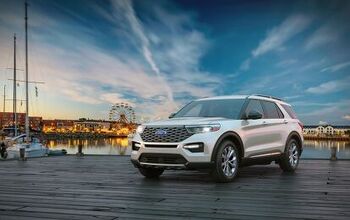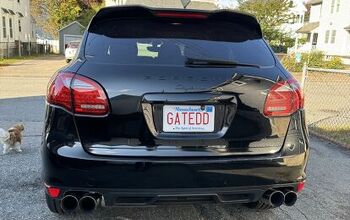2015 Traffic Death Spike is the Highest in 50 Years

Traffic deaths skyrocketed last year by the largest amount since 1966, erasing safety gains made in recent years.
The National Highway Traffic Safety Administration released raw 2015 data yesterday, revealing that 35,092 people died on U.S. roads — a 7.2 percent spike in fatalities compared to the previous year. The data shows the deaths weren’t confined to any particular demographic.
As bad as it sounds, the increase is less than the NHTSA’s July estimate of a 7.7-percent gain.
Vehicles are safer today than even a decade ago, when traffic deaths were 25-percent higher, but a range of factors cancelled out the extra airbags and driving aids offered up by automakers.
The NHTSA blames low fuel prices, job growth, increased leisure driving, and increased youth driving for the increase in vehicles on the road. Vehicle miles traveled rose by 3.5 percent in 2015, the largest increase in a quarter century. And more vehicles boost the odds that some of them will crash.
Data shows that old habits die hard — in this case, literally. Lawmakers have made gains in reducing impaired driving, but a third of last year’s crashes can be blamed on drunk driving and simple speeding. About half of the vehicle occupants killed weren’t wearing a seatbelt. One in ten deaths involved distracted driving.
The jump in fatalities occurred outside of vehicles, too. Motorcycle deaths rose 8 percent, while deaths of pedestrians and cyclists rose 20 percent compared to the year before.
Not surprisingly, the federal government wants to bring those numbers down. The Department of Transportation, along with the NHTSA and the White House released a call to action in the wake of the findings. The government wants experts, scientists and safety groups to propose “novel solutions to old challenges.”
“The data tell us that people die when they drive drunk, distracted, or drowsy, or if they are speeding or unbuckled,” said NHTSA administrator Mark Rosekind in a release. “While there have been enormous improvements in many of these areas, we need to find new solutions to end traffic fatalities.”
At the very least, expect new campaigns against drunk, distracted and reckless driving in the short-term.
[Image: Bryce Watanabe/ Flickr]

More by Steph Willems
Latest Car Reviews
Read moreLatest Product Reviews
Read moreRecent Comments
- Lorenzo Yes, they can recover from the Ghosn-led corporate types who cheapened vehicles in the worst ways, including quality control. In the early to mid-1990s Nissan had efficient engines, and reliable drivetrains in well-assembled, fairly durable vehicles. They can do it again, but the Japanese government will have to help Nissan extricate itself from the "Alliance". It's too bad Japan didn't have a George Washington to warn about entangling alliances!
- Slavuta Nissan + profitability = cheap crap
- ToolGuy Why would they change the grille?
- Oberkanone Nissan proved it can skillfully put new frosting on an old cake with Frontier and Z. Yet, Nissan dealers are so broken they are not good at selling the Frontier. Z production is so minimal I've yet to see one. Could Nissan boost sales? Sure. I've heard Nissan plans to regain share at the low end of the market. Kicks, Versa and lower priced trims of their mainstream SUV's. I just don't see dealerships being motivated to support this effort. Nissan is just about as exciting and compelling as a CVT.
- ToolGuy Anyone who knows, is this the (preliminary) work of the Ford Skunk Works?


































Comments
Join the conversation
Maybe a concerted effort on Random Breath Testing & Mobile Drug testing will alleviate some issues there. The biggest problem in the US is not enforcing the compulsory use of seat belts for front & back seat passengers. Australia was the first country in the world for compulsory wearing by all passengers in 1971 & road deaths here are still historically low, despite an increase in drink & drug impaired drivers. An increase of speed limits to 120km/h on some freeways & a reduction of speed limits on others have helped the road toll to stay relatively low. Food for thought for over in the States.
Im just going to go ahead and point out the elephant in the room that most here seem to be forgetting. Humans cannot handle smart phones and driving at the same time. I drive 40 miles each way of my daily commute through Houston traffic. 80-90% of the slowdowns and fender benders are directly related to telephone use. While Houston is growing, traffic is getting worse because people cannot stay off of their telephones. A few weeks ago I was almost hit in a crosswalk by a driver who was so busy texting that he didnt check the crosswalk(that I had the ROW in) before turning. Texting/Phone use in Houston is a serious issue now, and I will pay to be on one lane toll roads just because it is safer.